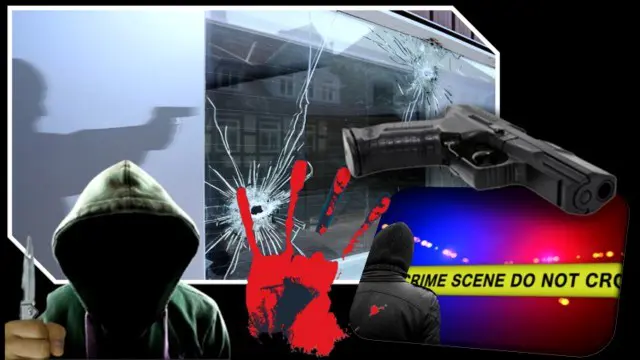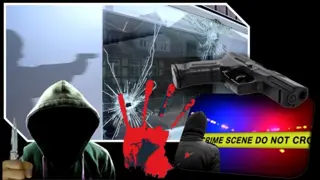
Criminal Psychology: Situational Awareness and Victim Selection (Fully Accredited)
Learn Situational Awareness and How Criminals Target Their Victims
Francois Meyer
Summary
- Certificate of Completion - Free
- Reed Courses Certificate of Completion - Free
Add to basket or enquire
Overview
CRIME FORMS A GREAT PART OF OUR DAILY LIVES. NO-ONE IS IMMUNE AGAINST THE CRIMINAL ASPECT IN OUR COMMUNITY.
Not a day goes by that we don't read in the newspaper about someone who was attacked in their homes. Violent crimes and armed robbery are a serious problem in the world.
And the problem is getter worse every day!
Many people believe it won't happen to them, and therefore do not prepare or plan ahead.
If you are unprepared, there is a 90% chance of you falling a victim to crime sooner or later. With a little foresight and planning, you can lessen these chances to only 10%.
YOUR LACK OF AWARENESS MAY GET YOU KILLED!
Learn how Not to be a Victim…
REMEMBER: No crime can commence if the opportunity therefore does not exist.
In this course, we look at how crime affects us and what we can do as individuals to lessen our chances of falling victim to crime.
This course is based on research published in my book based on the study of criminal, as well as victim behaviour, in a country ranking 3rd in the world with most violent crimes.
The latest statistics prove that this country has a daily murder rate higher than the Ukraine War!
As a law enforcement, tactical, and private security professional trainer, I train instructors on international levels and was invited as guest presenter at International Annual Training Conferences for Law Enforcement Instructors. Apart from that, I study people and behaviour. And with a qualification in Forensic Psychology, qualified Cognitive Behavioural Therapy Practitioner, Ordained Life Coach Minister, and a Doctor’s Degree in Theology, I get to study people and behaviour on a regular basis. I mainly focus on PTSD and victimology, the aftermath of crime, but it is even more important to focus on the prevention of crime. By this, I mean preventing from becoming a victim in the first place. Because by doing that, you will not have to go to extreme physical measures of self-defense.
Situational Awareness…
The latest buzz word in the self-defense arena.
It teaches you to be aware of your surroundings, and the steps of awareness so that you do not get caught by surprise and feel paralyzed when the guy suddenly appears in front of you.
The problem is that it helps just diddly squat if you do not know what to look for.
So, what do potential criminals look like?
How do they think?
(Yes, from a Criminal Psychology point of view, I can bore you with endless white papers on the poor attacker, and how he comes from a background of abuse, poor neighbourhood, alcoholic parents, and current joblessness.)
But that is NOT what you want to know, is it?
Right now, you do not care where he comes from, or who his father was. You do not care whether he lost his job recently or has sick family members at home.
Your stuff is your stuff!
You worked hard, very hard, to accumulate all your stuff. You do not intend to give it all away to someone who just pops in for a quick, uninvited visit in the wee hours of the morning, to relieve you from the burden of your plasma TV.
Welcoming someone in your home at 3AM who entered through the window, is not on top of the friendliness list. Afterall, they almost never give you time to brush your teeth or gargle mouthwash before you greet them. Morning breath! Ughh!
Learn How criminals select their targets and their victims. So that you can prevent becoming a victim of crime.
I will see you on course...
- Dr Francois.
Achievement
Certificates
Certificate of Completion
Digital certificate - Included
Certificate of Completion will be sent from the International Skills Evolution Corporation upon successful completion of the course.
The course is accredited with the International Association of Therapists.
Reed Courses Certificate of Completion
Digital certificate - Included
Will be downloadable when all lectures have been completed.
Curriculum
-
1. Introduction 22:28
-
2. Global Crime Picture 44:07
-
3. Profile of a Criminal 40:24
-
4. Victimology 34:24
-
5. Victim Profile 15:58
-
6. Proactive Lifestyle 41:07
-
7. Legal Aspects of Self-Defense 12:54
-
8. Requirements of a Crime 04:49
-
9. Human Survival Mechanism 32:37
-
10. Counter Surveillance 14:48
-
11. Criminal Planning Cycle 45:09
-
12. Course End 02:00
-
Course Completion Questionnaire 11:00
Course media
Description
Victimology is the study of theories of victimization and the degree of risk a person has of becoming a 'Victim'...because of his or her personal, professional, or social life. It further evaluates the Victim and gains intimate knowledge of the victim's habits and lifestyle to provide reason why this particular 'Victim' was chosen at a given time and place.
Definition of victimology
1: the study of the ways in which the behavior of crime victims may have led to or contributed to their victimization.
When a crime is committed there are usually two parties involved: the criminal and a victim. Victimologists argue that the field of criminology ignores the role of crime victims and focuses primarily on the offenders and the types of crimes they commit. This course attempts to rectify this imbalance in the field by focusing on victims of crime. The course will present students with an introductory analysis of the field of victimology.
Victimology is a branch of criminology, which examines the nature of the victimization process; the relationships between victims and offenders; the emotional, physical, and economic impact of crimes on victims.
The field of victimology includes victim profiling, forensic victimology, and the scientific study of victims that focuses on their lifestyles, circumstances, the events leading up to the crime, and the nature of their victimization.
Victimology focuses on the victim and the interpersonal relations involved before, during, and after the commission of a crime.
Victimology is particularly interested in the victim who exhibits 'common victim behavior.'
The study of criminal cases, criminal statistics, and identification of the causes and conditions enabling the commission of crimes indicates that many crimes are, to a certain degree, due to the behavior of the victims themselves.
This conclusion can lead to the development of special, non-traditional measures to prevent crime, directed at preventing negligent, risky, or provocative behavior by a person and in turn empowers the person to prevent becoming a victim rather than having to revert to physical defensive measures.
New forms of prevention may be established both to prevent “re-victimization” on the part of persons who have already been victims and to identifying and warning potential victims whose behavior and lifestyle create opportunity to crime.
This course is designed to:
- Learn how criminals would rather select an easier target than you.
- Empower individuals to Not Be a Victim
- Empower Law Enforcement Officers by identifying potential perpetrators and preventing crime.
- Inspire Law Enforcement Instructors to teach fellow officers and communities.
- Designed to also support mental health professionals who seek to engage in prevention, investigation, and intervention on behalf of victims of crime.
In this course we discuss:
The Crime Picture (Statistics.)
Profile of a Victim
Victim Selection
Profile of a Criminal
Criminal Modus Operandi
How do YOU become a Victim?
Self Defense (the Legal Side)
Requirements of a Crime
Proactive Lifestyle
Situational Awareness
Understanding Your Body's Survival Mechanism (strengths and weaknesses)
The Criminal Planning Cycle
Counter Surveillance
What makes this course different?
We believe in providing high quality training at affordable prices. That way we can empower so many more people.
As a trainer in Law Enforcement, Firearms and Specialized Tactical Operations in a country ranking no. 3 in the world on statistics on the most violent countries in the world, I have not only theoretical knowledge of criminal statistics and studies, victim statistics and profiles, Modus Operandi of criminals, but hands-on experience on how criminals operate, ranging from organized crime, crime syndicates, opportunist crimes, car-jacking, and human trafficking. Apart from the no. 3 ranking in the most violent countries, I also live and operate in one of the most violent cities in the world, according to some world renowned statistics.
I design and supply firearm training learning material, and am a speaker and course presenter at International Law Enforcement Instructor Annual Training Conferences.
Now, on this course, I bring you 30 years of experience in a short course, to equip to become a Hard Target in any country, regardless of whether you are law enforcement, a civilian, or therapist who deals with victims of crime. Therapists will understand Victimology better to empower victims in dealing with the aftermath and feel more empowered by knowing that they can be a Tough Target in future.
The course is Accredited with the International Shooters' Network and approved by the International Accreditation Organization.
Who is this course for?
- Citizens of every country in the world who want to understand how criminals select their victims and how NOT to become a victim in any country.
- Victims of Crime who want to understand how they can prevent themselves from becoming a victim again.
- Law Enforcement, Military, and Private Security personnel who want to be more effective in their duties and understand how the body responds to shock and why.
- Mental health professionals who seek to engage in prevention, investigation, and intervention on behalf of victims of crime.
- Tourists who travel to many countries across the world, who want to know which countries are high risk for travelers.
Requirements
No previous training required. We are here to guide you through the learning process. All you really need is the will to learn.
Questions and answers
Currently there are no Q&As for this course. Be the first to ask a question.
Reviews
Currently there are no reviews for this course. Be the first to leave a review.
Legal information
This course is advertised on reed.co.uk by the Course Provider, whose terms and conditions apply. Purchases are made directly from the Course Provider, and as such, content and materials are supplied by the Course Provider directly. Reed is acting as agent and not reseller in relation to this course. Reed's only responsibility is to facilitate your payment for the course. It is your responsibility to review and agree to the Course Provider's terms and conditions and satisfy yourself as to the suitability of the course you intend to purchase. Reed will not have any responsibility for the content of the course and/or associated materials.


